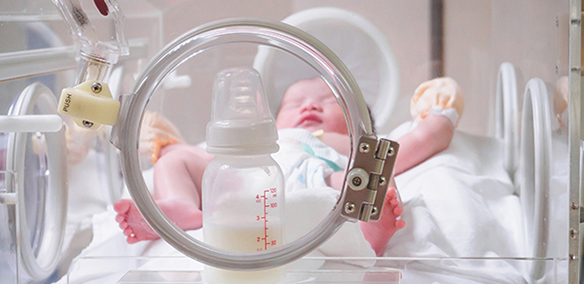Premature Labor

Pregnancy comes with many changes — some expected, some surprising. While early labor is rare, knowing the signs can help protect your health and your baby’s.
What Is Premature Labor?
Premature labor, or preterm labor, happens when contractions begin before the 37th week of pregnancy and cause the cervix to open earlier than it should. This can lead to the birth of a premature baby, which may increase the risk of health problems.
Understanding Contractions
Contractions are the tightening of the uterus as its muscles flex. During a contraction, your belly will feel hard and then soften as it passes. It’s normal to feel occasional tightening throughout pregnancy — these are called Braxton-Hicks contractions.
You may notice these practice contractions:
- After climbing stairs
- After sex
- After urinating
- When lying down
Braxton-Hicks contractions are typically irregular and don’t cause changes to the cervix. But if contractions become regular — for example, every 10 to 12 minutes for an hour — they may lead to cervical dilation and could be signs of early labor.
How to Check for Contractions
Lie down and gently place your hand on your belly. A true contraction makes the entire abdomen feel hard — not just one area. As your baby grows, their movements might feel similar to contractions, but the key difference is that true uterine contractions make the whole belly firm and come in a pattern.
When to Time Contractions
If your belly tightens and softens at regular intervals, start timing them. Count from the beginning of one tightening to the start of the next for at least an hour. If you have more than five contractions in an hour, or if they feel strong or consistent, contact your healthcare provider right away.
Warning Signs of Premature Labor
Call your healthcare provider immediately if you notice any of the following signs. Acting quickly can help delay labor and support the best outcome for you and your baby. Premature labor symptoms you should not ignore include:
- Abdominal cramps, with or without diarrhea
- A contraction every 10 minutes or more often within an hour
- Backache that feels low and dull
- Blood from your vagina
- Menstrual-like cramps
- Pelvic pressure or a feeling that the baby is pushing down
- Sudden or unusual increase in vaginal discharge
- Watery fluid leaking from your vagina
What to Do if You Suspect Premature Labor
Take these steps while waiting to speak with your healthcare provider:
- Drink plenty of fluids
- Empty your bladder
- Lie on your left side
Trust your instincts — if something doesn’t feel right, don’t wait. Getting care quickly can make a big difference.
Support at Every Step
From conception to delivery, our pregnancy and childbirth providers put you first.





